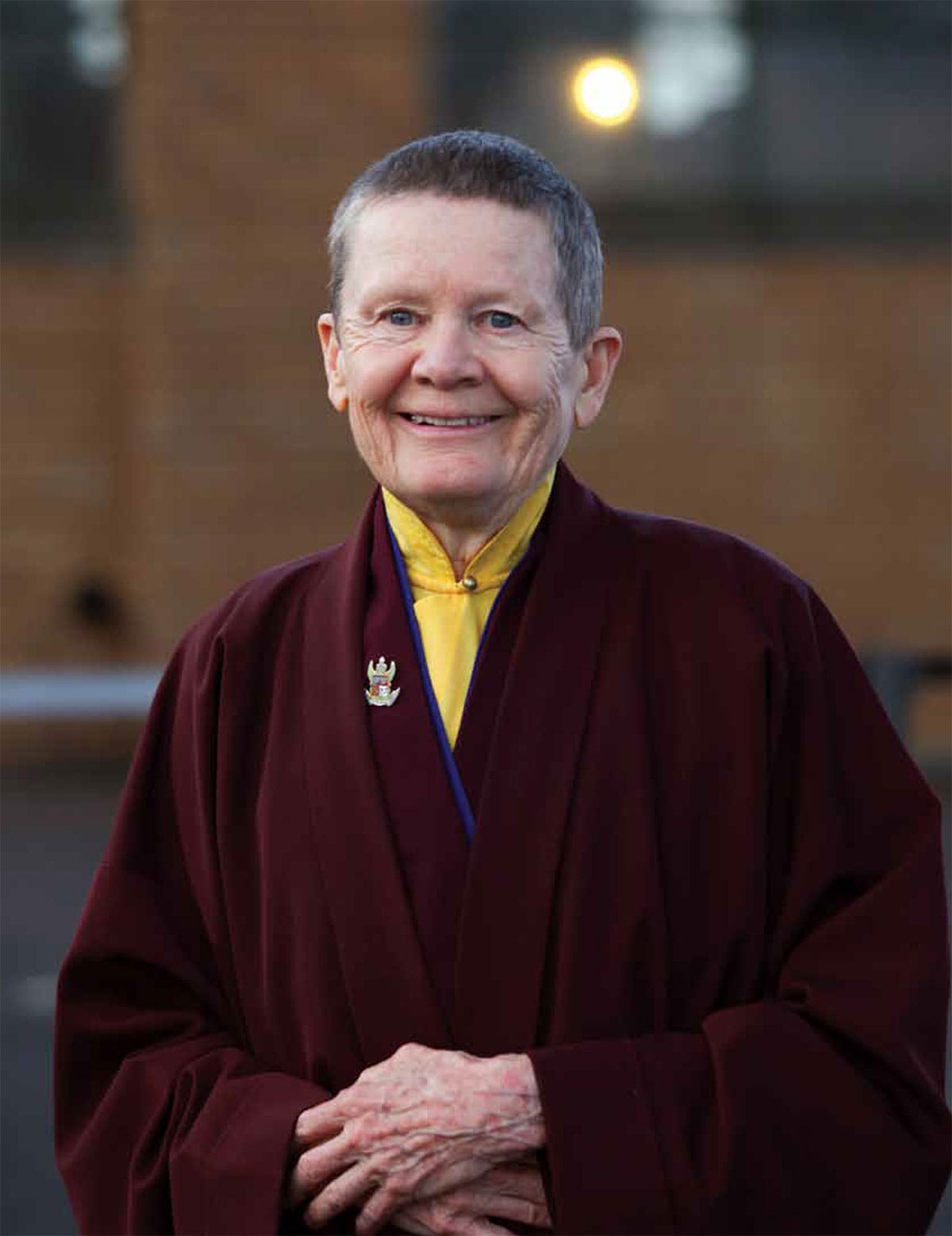*****

Photo by Andrea Roth.
If you want to pitch in and help solve the world’s problems, says Pema Chödrön, you’ve got to start with yourself. Here’s her advice for making friends with the fear that can hold us back.
Despite what we might think much of the time and what the news programs imply, we all wish to be sane and open-hearted people. We could take our wish to be more sane and kind and put it in a very large context. We could expand it into a desire to help all other people, to help the whole world. But we need a place to start. We can’t simply begin with the whole world. We need to begin by reaching out to the people who come into our own lives our family members, our neighbors, our coworkers. Perhaps we are inspired to enter a profession where we can spend our time and energy trying to help at a global or national level. But even if we express our wish to be open-hearted by working for global peace or justice or environmental well-being, even on that grand scale, we need to work on what is immediate to us all the time. We need to work on ourselves.
When we do this work on ourselves, however, we can still think of it in the wider context of our community, our nation, and our world. Viewing the work we do on ourselves in this larger context is very important. I don’t mean to be harsh, but I have to say that a lot of people who do so- called spiritual work can be somewhat selfish. Their spiritual path is all about taking care of themselves, and they may not notice that what makes them feel comfortable and secure is actually at the expense of other people. We all know other people like this, don’t we?
If we’re hurting enough, and we really start looking for the source of our pain and what we can do about it, it goes beyond just wanting to feel better ourselves. In Buddhism, this is called the bodhisattva ideal. In the Shambhala teachings, we talk about it as warriorship, or, you might say, spiritual warriorship. At its most basic, it means working on ourselves, developing courage and fearlessness and cultivating our capacity to love and care about other people. It involves taking good care of ourselves, but whatever we do, it’s all in the bigger context of helping.
When we look at the world around us — our immediate world and the bigger world beyond — we see a lot of difficulty and dysfunction. The news we hear is mostly bad news, and that makes us afraid. It can be quite discouraging. Yet we could actually derive inspiration for our warriorship, for our bodhisattva path, from these dire circumstances. We could recognize the fact, and proclaim the fact, that we are needed.
Who are “we”? You and me and every one of us—each of us on this earth is needed at this time. Why are we needed and in what way are we needed? We’re needed because there are hundreds of thousands of billions of beings who are suffering. If even one small segment of us, one sub-community, took it upon themselves to live their life in a way that helped their families, their neighborhoods, their towns, and indeed the earth itself, something good would begin to happen.
If we come to the understanding that we are needed and commit ourselves to doing something about our own pain and the pain around us, we will find that we are on a journey. A warrior is always on a journey, and a main feature of that journey is fear. This fear is not simply something to be lamented, avoided, or vanquished. It is something to be examined, something to make a relationship with.
Fear is a very timely topic now, because fear these days seems so palpable, so atmospheric. You can almost smell the fear around you. The polarization, fundamentalism, aggression, violence, and unkindness that are happening everywhere on the planet—these bring out our fear and nervousness and make us feel that we are on shaky ground.
No comments:
Post a Comment